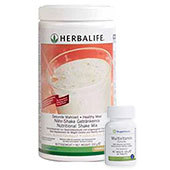Spirulina, blue green algae: Benefits
Question
There always is somebody advertising the new "miracle" food supplement. So I was wondering if eating spirulina or blue green algae type food supplements is worth the expense or is it just hype?
Hello,
First of all, Spirulina is nothing new. Spirulina as a food is known as far back as the 16th Century when it's been reported by first Europeans that Aztecs harvested this blue green algae.
This cyanobacterium can potentially be an important
staple in the human diet due to its nutritional qualities:
1. High content of protein (60 percent of its weight)
2. Phenols, tocopherols, beta-caroten and alfa-inolenic acid;
3. Lacking cellulose cell walls, which makes it highly digestible.
Spirulina is shown to be an a potent immune
modulator with anti-inflammatory properties including inhibition of histamine release and suppressing allergic
reactions. It also displays antioxidative and
free radical scavenging properties.
As to your question whether or not it's worth the expense, it depends. Perhaps not, for a healthy physically active person eating plenty of what's recently called "power foods" or functional foods (see suggested reading below) but if you struggle with inflammatory, allergic, or other health problems, maybe Splina is something to consider.
Reading:
Functional Foods
http://dietandbody.com/2007/08/functional-foods.html
How Prebiotics Work
http://dietandbody.com/article1190.html
Yogurt and the benefits of probiotics
http://dietandbody.com/plan/yogurts.html
Power Foods
http://dietandbody.com/Top-Ten-Power-Food.html
http://dietandbody.com/2007/08/health-benefits-of-almonds-broccoli-and.html
References on Spirulina:
1. World Rev Nutr Diet 1995;77:32�
2. J Appl Phycol 1993; 5:235�.
3. Life Sci 1997;61:1237�4.
4. Biochem Pharmacol 1998;55:1071�6.
5. J Med Food 2002;5:205�.
== Tanya Zilberter
- Prev:weight lifting plateau
- Next:good proteins
Related Articles
-
Refined Sugar intake
QuestionIm currently involved in an intense workout routine where
-
is it true that cholesterol increases testosterone
Questioni have heard, only as a rumor though, that cholesterol ma
-
NEED HELP ASAP
QuestionHi there, I am a 34 yr old female with a long list of pro
-
frozen pizza
QuestionHi. Can you tell me if frozen pizza always has more
-
Losing weight in face/neck
QuestionIs there any way to lose weight in the face/neck? W
-
Help lossing ten pounds soon
QuestionHello , I am here to ask about how to loss 10 pounds with




